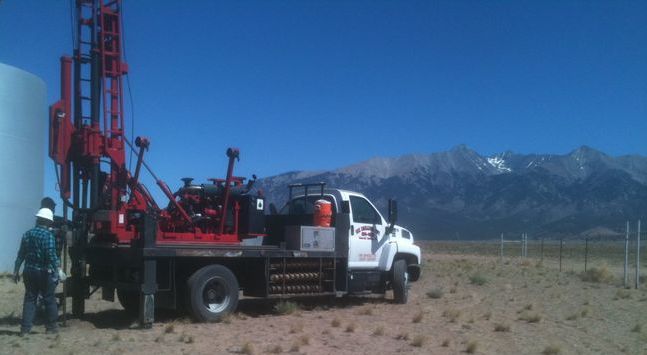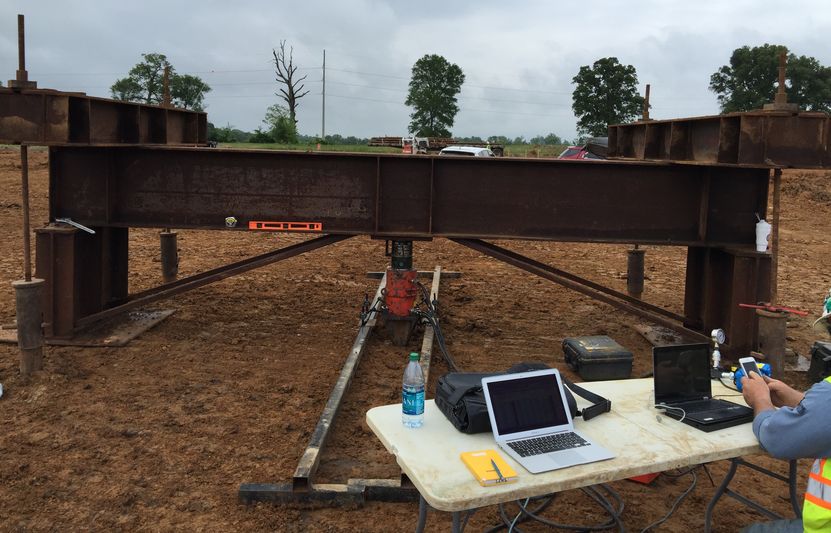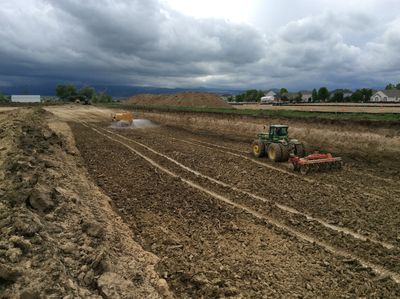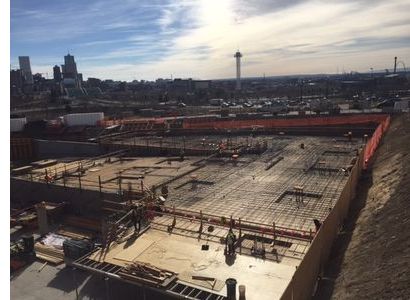Services
Cole Garner Geotechnical (CG Geotech) offers a wide range of services applicable to residential and commercial land development, public infrastructure, industrial facilities, medical, education, and government business sectors. Whether completing “due diligence” work for a potential land purchase, moving into full civil and structural design, or ready to build, we specialize in helping our clients negotiate the complexities of development and construction from the ground up in Colorado and beyond.
Don't see something below that is specific to your project? Just Contact Us... We have an extensive knowledge base and network to help find the answers you need. At CG Geotech, we strive to provide valuable assistance in completing your project efficiently, cost effectively, on schedule and under budget.
Geotechnical Engineering Services

- Subsurface Exploration and Field Testing: Auger Drilling and Sampling of soil and bedrock, Bedrock Coring, In-situ Field Penetration and Strength Testing, Groundwater Monitoring, Electrical Resistivity, Geophysical Investigation
- Geotechnical Laboratory Testing of soils, aggregate, and rock: Sieve Analysis, Atterberg Limits, and other Classification Testing, Swell and Consolidation, Compaction Characteristics (Proctor Test, Maximum Density and Optimum Moisture determination), Compressive and Shear Strength Testing, Corrosivity
- Geologic Site Reconnaissance and Identification and Mitigation of Geologic Hazards: Expansive Soils and Bedrock, Collapsible Soils, Slope Instability, Subsidence, Shallow Groundwater, Man-made/Undocumented Landfills
- Foundation Analysis and Develop Criteria for Design: Deep Foundations (Drilled Piers, Helical and Driven Piles), Auger-cast Piles, Spread Footings, Slab-on-grade and/or Mat Foundations, Post-tensioned Slab-on-ground, Lateral Pressures for Basement Walls and Retaining Walls, Seismic Design Criteria
- Soil Stabilization and Ground Improvement: Overexcavation and Recompaction/Replacement, Stabilization of soft, loose, or unstable soils, Aggregate/Rock Crowding, Chemical Stabilization with Lime, Cement, or Fly Ash, Mechanical Stabilization with Geogrid/Geotextiles, Pressure or Compaction Grouting, Rammed-aggregate Piers or Stone Columns, Deep Dynamic Compaction
- Groundwater Control: Groundwater Monitoring Wells, Flow Rate determination (Slug Testing, Pump Testing), Subsurface Drainage Systems, Interceptor Drains and Underdrains, Cut-off Walls, Slurry Walls, Foundation Drains, Waterproofing
- Earth Structures, Slopes, and Earth Retention Systems: Slope Stability Analysis, Mechanically-Reinforced Earth Slopes, Mechanically-Stabilized Earth Retaining Walls, Shoring Systems and Excavation Support, Soldier Piers, Soil Nails, Rock Anchors, Helical Tiebacks, Piles and Lagging, Sheetpiles
- Pavement Design and Subgrade Evaluation: Subgrade Evaluation and Improvement, Pavement Thickness for Public and Private Improvements using AASHTO, State DOT, and Local Agency Standards, Flexible (Hot-mix Asphalt) and Rigid (Portland-cement Concrete) Pavements, Evaluation of Existing Pavements, Pavement Rehabilitation Alternatives, Pavement Materials Specifications and Review
- Forensic Geotechnical and Materials Analysis: Geotechnical Evaluation of Existing Structures, Pavements, and Site Features, Document Review and Consultation, Analysis of Failure/Distress related to Geotechnical or Material Properties and Construction Methods/Defects


Construction Materials Testing and Special Inspections: Summarized below, conforming with the salient sections of Chapter 17 of the International Building Code
Construction Quality Assurance/Quality Control Programs: Scope of Work tailored for each project based on planned Civil Improvements, Architectural and Structural requirements, Building Code/Official requirements, and Local Agency Standards.
 Soil and Aggregate:
Soil and Aggregate:
- Field and Laboratory Testing of Soil and Aggregate: Classification, Gradation (Sieve Analysis), Compaction Characteristics
- Overlot Grading Observation and Compaction Testing: Confirm correct procedures are used for earthen cut/fill operations, including proper processing, blending, lift thickness, moisture conditioning, and compaction are being used. Compaction testing is used to confirm required outcomes are being met
- Earthwork/Roadway Construction Field Testing: Utility Trench Backfill, Flatwork and Roadway Subgrade Preparation and Compaction, Stabilization
- Special Inspections (ICC Chapter 17): Soils, Deep and Shallow Foundations
Concrete and Masonry: Structures, Pavements, Flatwork, etc.

- Mix Design Trial Batches and Review
- Special Inspections (ICC Chapter 17)
- Reinforcing Steel and Post-Tensioned Cable Inspection
- Field Testing of Fresh Concrete: Slump, Air Content, Unit Weight
- Laboratory Testing: Compressive Strength of Concrete Cylinders, Grout and Mortar Specimens, CMU Prisms, Shotcrete, and Cores
- Proof Load Testing and Full-Scale Load Testing
- Structural Steel Inspection: Non-destructive Weld Testing, Bolt Torque
- Floor Flatness and Levelness Surveys
- Fireproofing: Spray-applied and Intumescent
Asphalt Pavements:
- Mix Design Development and Review
- Temperature Monitoring (Ambient and Delivered Material)
- Review of Placement and Rolling Pattern
- Compaction Testing
- Field Sampling for Laboratory Analyses: Gradation, Asphalt Content, Maximum Density and other mix properties
- Coring for Thickness and Density
Additional Construction Testing and Inspection Services:
- Civil and Erosion Control Inspections
- Framing, Drywall, etc.
- Anchor Bolts and Hold-Downs
- Foundation Drains, Dampproof, and Waterproofing
Our firm is engaged in Reference Sample programs administered by the Cement and Concrete Reference Laboratory (CCRL) and the Association of State Highway Transportation Officials (AASHTO) to ensure accurate and repeatable testing. Our quality management program has been reviewed by AASHTO’s Material Reference Laboratory and has demonstrated proficiency for the testing of construction materials and has conformed to the requirements established in AASHTO R 18. The scope of accreditation can be viewed on the AAP Directory of Accredited Laboratories on www.amrl.net.
Looking for more? Contact us...
